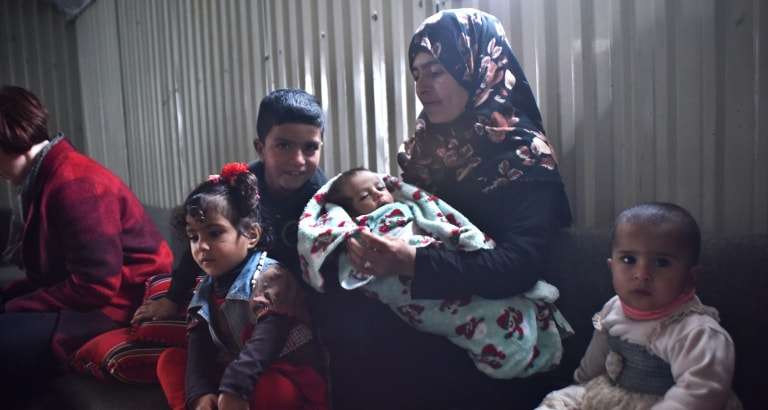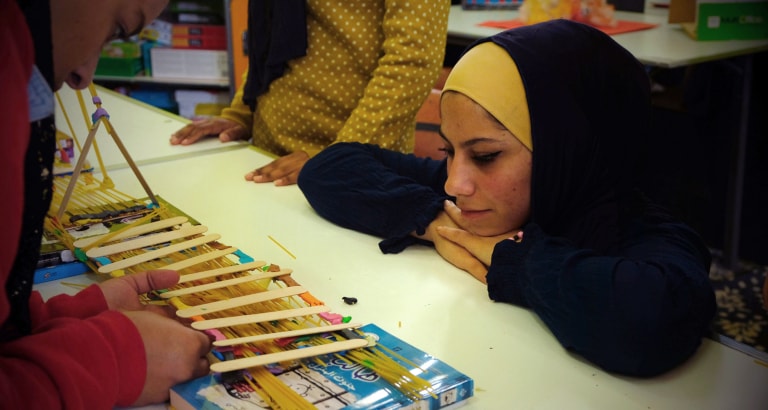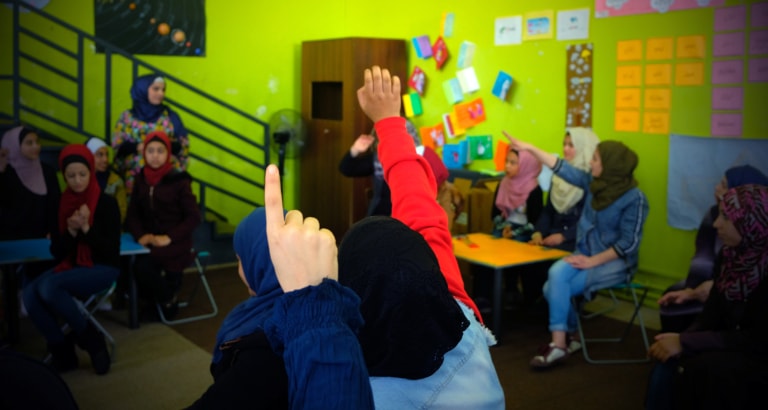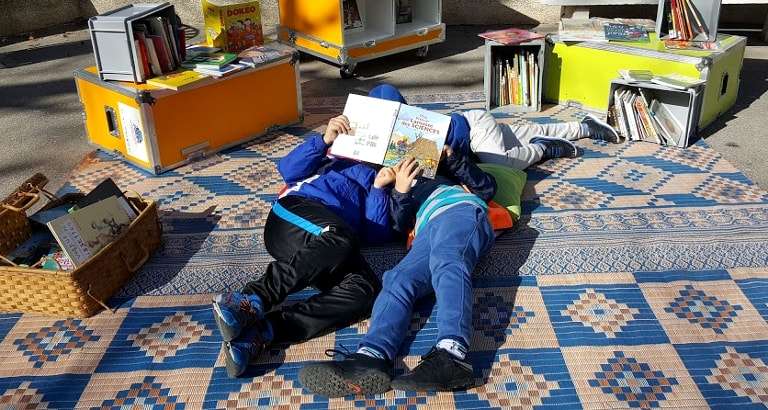
In September 2018, Libraries Without Borders partnered with the Jordanian Hashemite Fund for Human Development (JOHUD) to install a self-managed Ideas Box at one of their community centers in Amman, the capital of Jordan. Each day, children and adolescents who have dropped out of school visit the center to participate in thematic workshops created by our team leaders and community teachers, on topics ranging from literacy to English language learning, from child protection to gender equality. We spoke with Narjis, Areej, and Hanan, facilitators of the Ideas Box, who provided first-hand accounts of the project at JOHUD.
In Jordan, high transportation costs keep a number of young people from going to school, most notably girls whose parents fear that they’ll be harassed or assaulted on the way there. As for boys, the lack of economic opportunities often forces them to work early on. What’s more, those who drop out of school at a very young age are usually not allowed to re-enroll, leaving them out of the education system altogether.
To address the large population of drop-out students, JOHUD has set up multiple non-formal education centers in Amman, offering young people the possibility to pursue an academic path divided into three cycles and then receive a certificate. It’s in the center at Marka, on the outskirts of Amman, where an Ideas Box was installed in September 2018.
Since the deployment of the Ideas Box, our team has trained several facilitators and worked together with local teachers at the center, prompting conversations about new ways of learning. The teachers have not only integrated the Ideas Box’s tools and resources into their courses, they have also used it to develop thematic workshops for students.
“With the Ideas Box, we wanted to show students and teachers that there are new ways of learning and teaching, ones that are more interactive and dynamic. That it’s, for example, possible to learn about the solar system by playing,” explained Narjis, IT officer and team trainer at Libraries Without Borders.



